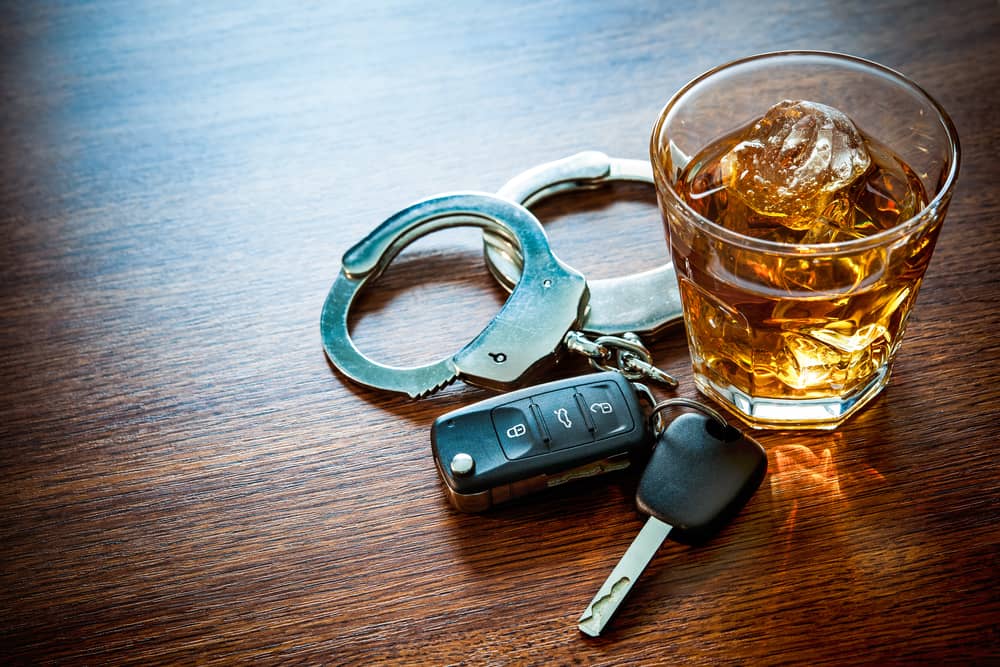Everything you need to know if charged with a DWI or DUI in Houston

Like other states, Texas takes drunk driving very seriously. As a result, facing these charges can lead to a variety of life-changing consequences.
There are 2 different potential charges in the state: driving while intoxicated and driving under the influence. While many people use the terms DWI and DUI interchangeably, they do not mean the same thing.
DWI stands for driving while intoxicated, while DUI means driving under the influence. Texas law defines both of these terms differently.
If you’re facing one of these charges, hiring a Houston DWI/DUI lawyer to help with your case can make a huge difference in your outcome. The information below will help you learn the difference between a DWI and DUI charge and what steps to take next.
What is a DWI?
Section 49.04 in the Texas Penal Code defines driving while intoxicated as when “a vehicle is in operation in public.” The state considers someone a drunk driver if their mental and/or physical faculties have been impacted due to alcohol, a controlled substance or dangerous drug use. A blood alcohol concentration (BAC) of 0.08 or above also establishes intoxication.
What is a DUI?
Although a DUI also involves operating a vehicle while intoxicated, the charges are different. A DUI charge can come into play even with the BAC being below 0.08. The difference is that a person can be charged with DUI if there is any amount of an impairing agent in the driver’s system or if they are underage.
A minor is automatically considered to be driving under the influence with any measurable amount of alcohol present in their system under state law.
Your Legal Guide to Underage Drinking in Texas
Learn about the laws and penalties for underage drinking in Texas
Penalty differences in DWIs vs. DUIs
One thing that puts the average person facing an impaired driving charge at a disadvantage is not knowing the difference between the charges and penalties.
It’s not uncommon for people to use the terms DWI and DUI interchangeably. However, each of these charges requires a different type of legal defense.
So is a DWI or DUI worse in Texas?
- DUIs. A DUI is a Class C misdemeanor in Texas, while a DWI is a more serious Class B misdemeanor charge. DUI charges only apply to minors, defined as those under the legal drinking age of 21. The consequences of a DUI might include license suspension for up to 60 days, alcohol awareness classes that are mandated, up to 40 hours of community service time, and a fine of up to $500.
- DWIs. In DWI cases where the accused has a BAC that is 0.15 or higher, the charge becomes a Class A misdemeanor. When another person ends up injured because of an intoxicated driver, the accused might face either second- or third-degree felony charges.
Texas felonies have severe consequences that include 2-10 years in prison and fines of up to $10,000.
Is jail mandatory for a first DWI offense?
Jail time is not always mandatory for a first DWI offense, but it depends on the situation. If you have a criminal record or you’re well over the legal BAC limit of 0.08%, you can face elevated charges and heftier penalties, including jail time.
What are some other consequences of a DWI conviction in Texas?
In addition to penalties handed down by the court, there are other serious consequences that can result from a DWI conviction that can change your life in negative ways:
- Loss of professional licensure. If you hold a license in certain professions, such as in the medical field, your job might be jeopardized by your conviction. You can also lose your job due to license suspension if you’re convicted of a DWI.
- Employment difficulties. If you can’t drive to work, you are at the mercy of others to drive you, but this isn’t always practical or economical. In that situation, you could end up losing your job because you have no way to get there.
- Loss of firearms. You may lose your right to own firearms if you’re convicted of a felony DWI. By law, felons are prohibited from owning guns.
- Loss of voting rights. You are also prohibited from voting if you’re convicted of a felony, which means your voice cannot be heard on Election Day.
- Child custody issues. A DWI conviction can even affect your child custody rights. If you’re in the middle of a contentious divorce and are fighting for custody, the judge might see you as a serious risk to your children. This is especially the case if you have multiple DWI arrests or convictions on your record. Depending on the circumstances, if you already have custody, the court can change or revoke it if you’re deemed a danger to your children.
- Difficulty finding housing. Your ability to secure new housing can even be affected by a DWI conviction. Landlords want tenants who they know will be reliable and safe. If you’re convicted of a felony, it could make finding a new apartment challenging.
- Difficulty securing a loan. You may even have trouble qualifying for loans if you’re convicted of a DWI. Lenders want to see that you’re a good risk, but a criminal record may impact that. If you are deemed a negative risk, you will be less likely to get a loan when you need one. For example, if you need a car loan in the future, a background check can reveal your DWI conviction and cause the lender to decline your loan.
Are You Eligible for a Texas DWI Nondisclosure?
Learn when you may be eligible to have your DWI conviction sealed from public view.
Can you be charged with a DUI without driving?
Some states charge drunk driving as “operating a vehicle while intoxicated” or OWI. Texas doesn’t have a specific law pertaining to this term, but it considers a person operating a vehicle while intoxicated a DWI case.
A person can face DWI charges any time they’re “operating” a vehicle while intoxicated. This can include times when they’re not even technically driving. For example, if a driver is sitting in the driver’s seat while the motor is running, but the car is parked, they could be considered to be “operating” the vehicle according to Texas law.
Can an attorney get a DWI dismissed?
If you’re charged with a DWI, you’ll want to have a defense attorney get that charge dismissed. Your attorney will look at the facts in your case and build a strong defense based on those circumstances. It’s possible to get DWI charges reduced or even dismissed altogether. This can even happen before the case goes to trial.
Reasons why your DWI case might be dismissed
Based on the available evidence, there are a number of ways an experienced DWI defense attorney could potentially get your case dismissed.
No probable cause
One of the biggest reasons for DWI cases getting dismissed is that the police officer had no probable cause to make the traffic stop. Police must have a valid reason to believe you were committing a crime before they can make you stop your car and charge you with a DWI or DUI. Lack of probable cause can get the charges thrown out.
Inaccurate breath tests
Unreliable breath tests can also lead to a dismissal of DWI charges. Breathalyzers must be properly calibrated and administered, or they can produce false results. Certain medical conditions like GERD and acid reflux can cause you to fail a breath test as well.
Unreliable field sobriety tests
Field sobriety tests aren’t always reliable for a variety of reasons. Certain medical conditions, footwear and even environmental factors can affect their accuracy.
Additionally, you cannot be arrested for a DWI based solely on the results of these tests. In that situation, your defense attorney can argue against that to get the charges dismissed.
Is it better to plead guilty or not guilty to a DWI?
Pleading guilty means that the charges apply, and you cannot get out of the penalties and other consequences that come with a conviction.
Pleading not guilty is often a better option in a DWI case because it gives you more options to challenge the charge and negotiate with the prosecutor, hopefully resulting in a reduced sentence or a full dismissal.
If you face DWI or DUI charges in Texas, it’s imperative to have a defense attorney on your side. It’s your best chance of having a favorable outcome in your case.
Pleading Guilty Vs. Going to Trial
Learn how pleading guilty or going to trial can impact the punishment you receive.
How an attorney can help with DUI and DWI charges
You’ll need an experienced criminal defense lawyer if you’ve been accused of impaired driving, regardless of which of the charges you’re facing. The penalties you face could be a lot harsher if you don’t have an attorney working to defend your rights.
Here are some questions to ask your lawyer:
- Is my charge a DWI or DUI?
- Can the breathalyzer test be refused, and what are the possible consequences?
- Could marijuana use result in DWI or DUI convictions?
- Are convictions possible even if my BAC is under 0.08?
- What type of penalties could I receive?
- Can I and should I represent myself in court?
- How much will getting an attorney cost?
Facing these types of charges is always stressful, especially for first-time offenders. Seeking out the advice and guidance of a lawyer is a wise choice. You don’t want to attempt to handle a problem like this on your own.
A DWI or DUI charge is very distressing, no matter the circumstances. Your chances of a better resolution increase when you have a seasoned lawyer on the case.
If you’re up against DWI or DUI charges, contact The Law Office of Matthew D. Sharp to help protect your rights. Call us today for a free consultation of your case.






